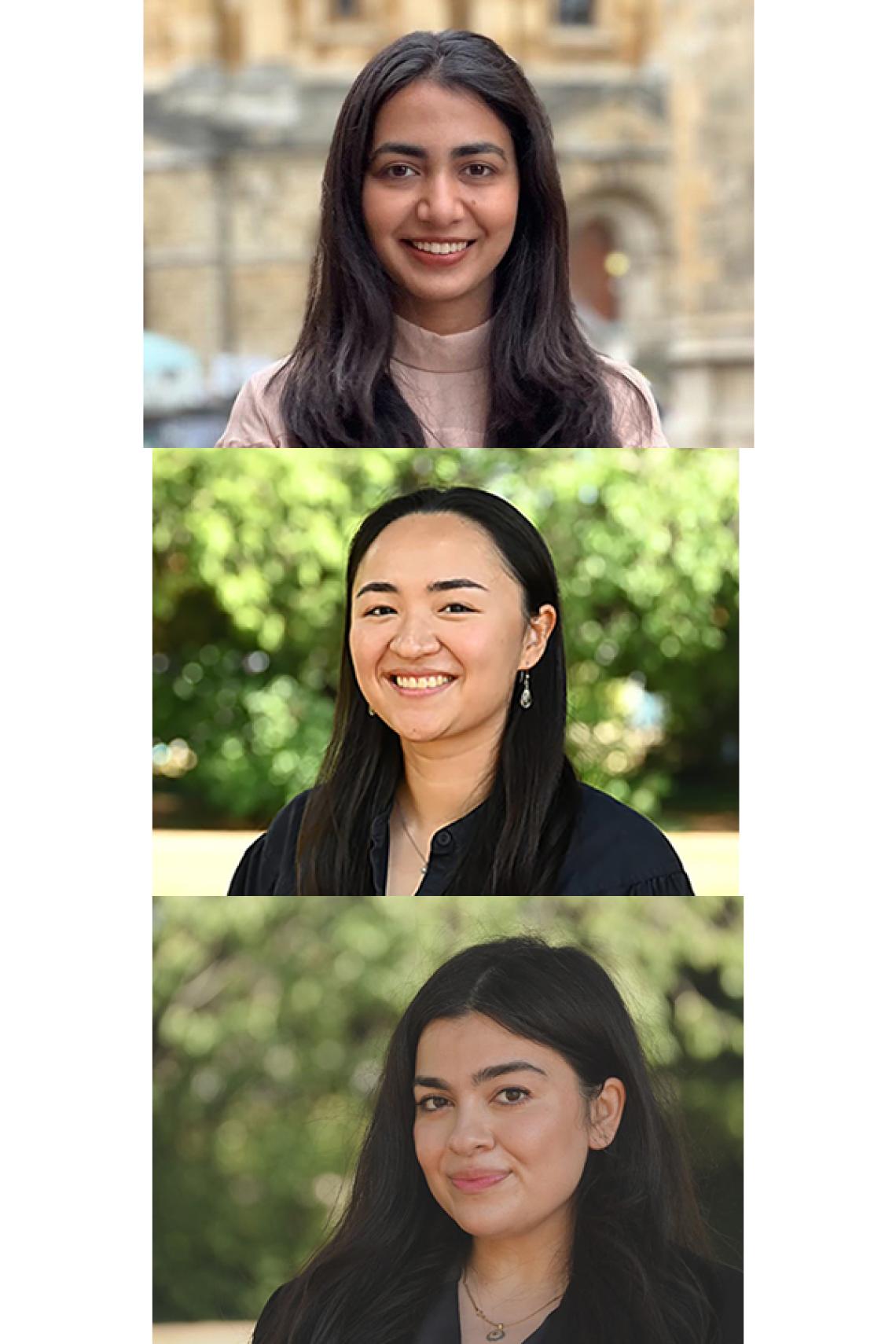Sonakshi Grover, Loïs Toumieux, and Tegan Hadisi win 2025 MPhil prizes
Congratulations to Sonakshi Grover, Loïs Toumieux, and Tegan Hadisi who have won the 2025 prizes for their performance in the MPhil in Development Studies.
Sonakshi Grover of St Catherine’s College won the Eugene Havas Memorial Prize, the prize for the best overall performance.
Sonakshi’s thesis examined lawyer–client interactions in divorce cases in a tier-2 Indian city, focusing on how legal advice encounters become spaces where understandings of law and marriage are actively negotiated. Centring on ‘mental cruelty’ as a legal ground for separation, she explored how grievances such as emotional neglect, lack of intimacy, or the absence of mutual respect are increasingly used to contest traditional norms of marital permanence. By tracing the journey from initiating divorce to seeking maintenance, the study revealed how family lawyers navigate and blur the boundaries between legal and non-legal domains – reshaping their roles in ways often overlooked in divorce scholarship. Through this lens, the thesis sheds light on what marriage – and its dissolution – means in a tier-2 Indian city, offering broader insights into gender, caste, and middle-class identity.
After graduation, Sonakshi plans to travel to Northeast India to explore how matrilineal traditions – distinctive to parts of the region – shape marital breakdown and the underlying gendered dynamics in unique ways. Building on this fieldwork, she intends to develop her MPhil research into a proposed DPhil project at the Oxford Department of International Development. The project will examine the evolving interplay between court organisation, marriage, and law in contemporary India.
Loïs Toumieux of St Antony’s College won the Papiya Ghosh Thesis Prize.
Loïs’ thesis explored the socio-environmental impacts of a nickel mine’s Biodiversity Offset (BO) pilot in Eastern Madagascar. Drawing on interviews with government officials, NGOs, and local communities, it aimed to look at BO ‘beyond the tool’, examining how the offset, although presented as a technical conservation mechanism, is in fact a deeply human project reliant upon the reshaping of local behaviours. Casting BO in light of a long history of mineral extraction in the country, it explored how ultimately, such projects may work to perpetuate asymmetries of cost and benefit in the mining sector for transition minerals.
Loïs will be moving to Bonn for the foreseeable future, and will pursue work aligned with her interests in contributing to a just energy transition. Eventually, she hopes to return to academia with a focus on human rights law in the extractive sector for green energy.
Tegan Hadisi of St Antony’s College won the Examiners prize.
Tegan’s thesis examined how authoritarian regimes leverage massive infrastructure projects to bolster their legitimacy. Centring on Saudi Arabia’s The Line, she investigated how such developments are deeply entangled with political power and the justification of centralised authoritarian governance. Her analysis demonstrates how infrastructure functions as both a tool of social control and a key element of the authoritarian bargain in an oil-rich, capital-abundant state. She reveals how megaprojects facilitate the procurement of foreign technical expertise whose backing can be critical to legitimising authoritarian rule.
Tegan is currently writing her forthcoming co-authored book, ‘Migrant TikTok: The Struggle for Digital Power’, and is seeking out research opportunities. She hopes to expand on her MPhil research in the coming future.
Find out more about the MPhil in Development Studies.

